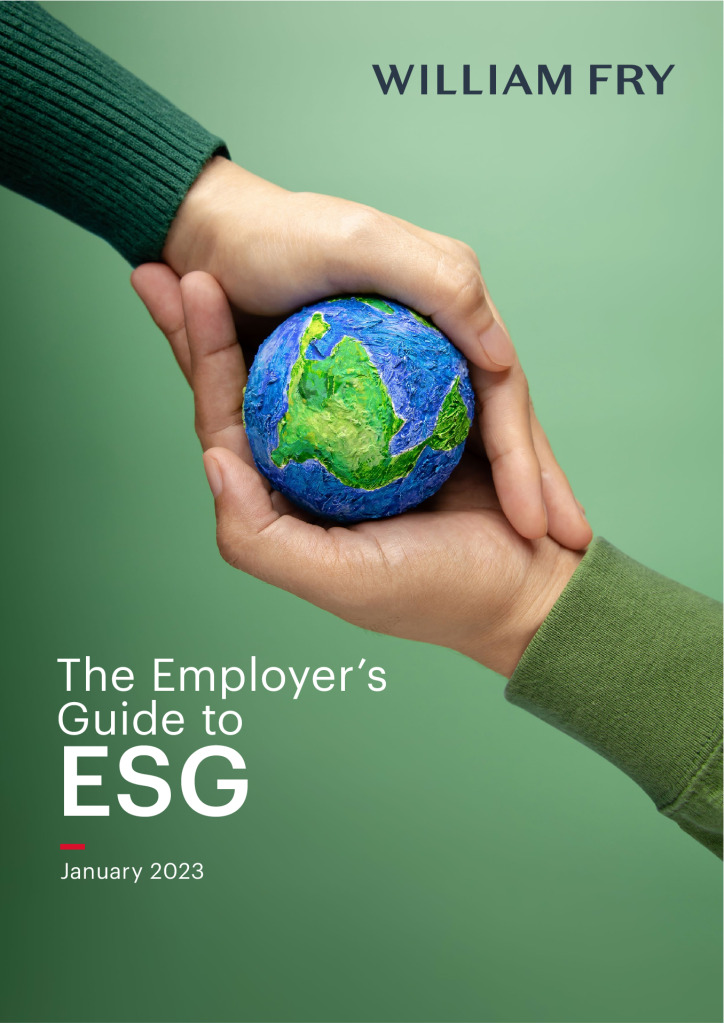Non-compliant employers face regulatory, capital, and talent retention challenges.
All employers in Ireland have ESG (environment, social and governance) obligations but only 17% know what these obligations are and have no concerns about implementing them. That’s according to The Employer’s Guide to ESG which surveyed over 400 employers and over 1,000 employees in Ireland.
The percentage of Irish employers surveyed who have implemented specific employment policies:
- 20% – Whistleblowing / Speak-up Policy
- 26% – Remote Working Policy / Hybrid Working Policy
- 12% – Right to Disconnect Policy
- 34% – Mental Health and Wellness Policy
- 31% – None of these
Commenting on the report, Catherine O’Flynn, Head of our Employment & Benefits team, said:
“Our survey shows that 77% of employers surveyed believe that they are compliant with all current employment legislation. However, only 20% have a whistleblowing policy and 12% have a right to disconnect policy. Employers who fail to comply with new legislation and new standards will not only face employment law risks but will also have difficulty in accessing capital markets, be at a risk reputationally, and be at a disadvantage when it comes to recruiting and retaining key talent.”
The Employer’s Guide to ESG includes employee views on the most important ESG policies. The top priority of those surveyed is to have a hybrid and flexible working policy, with only the 25 – 34 year olds indicating that fully remote working is a high priority. 25 – 34 year olds prioritised training and development the least while the over 50s prioritise gender pay gap reporting the least, out of all of the age groups. Interestingly, strong diversity and inclusion practices were ranked as the second least important policy to 25 – 34 year olds, just ahead of paid volunteering time.
The top ESG policy priorities of the 1000 employees surveyed:
- 38% Hybrid/Flexible Working Options
- 18% Health Insurance
- 11% Training and Development
- 11% Fully Remote Work
- 6% Dignity at Work
ESG is not a new concept, but until recently businesses focused primarily on the environmental aspect. This focus is now expanding to the social aspect and, at the EU’s request, the Social Taxonomy Report was published in February 2022. The Commission proposes to use this report to establish a classification system to measure an employer’s ‘social’ credentials. In the future, impacted employers will likely be required to collect, measure and report on various measurables to ascertain whether certain standards have been met and, in turn, whether such an employer is deemed to be ‘social’ or not.
The Employer’s Guide to ESG also notes that more and more Irish employers will link executive remuneration to ESG metrics. 71% of employees in the survey agreed that senior management bonuses should, or possibly should, be linked to their employer achieving its ESG social targets, including reducing the gender pay gap and improving equal opportunities.
Catherine O’Flynn adds a caution to employers:
“Our survey found that 37% of employers are not focused on the increasing number of ESG obligations because they do not feel it is relevant to their organisation. However, all employment legislation comes within the remit of ESG so is in fact relevant to all employers. Employees’ rights are increasingly protected by legislative developments and are further enhanced by the social component of ESG. It is difficult to defend employment claims if an employer is not compliant with legislation and relevant Codes of Practice and, at a minimum, employers need to comply with current legal obligations. However, employers who want to be ESG compliant should ensure that their policies reflect all existing legislation and that they are prepared to adopt and comply with new legislation as soon as it becomes effective, if not before.”
Click on the image below to read The Employer’s Guide to ESG.



